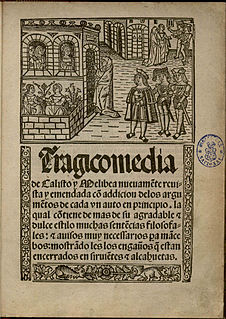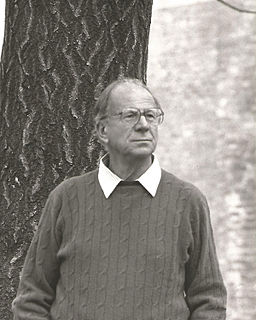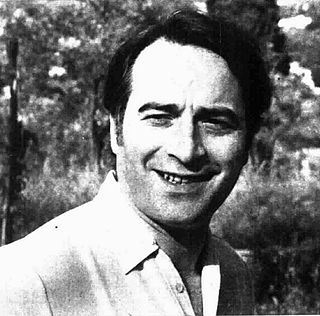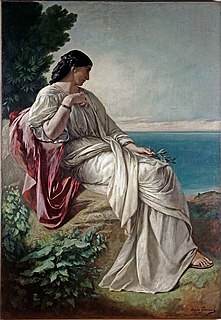Related Research Articles

The Tragicomedy of Calisto and Melibea, known in Spain as La Celestina is a work entirely in dialogue published in 1499. It is attributed to Fernando de Rojas, a descendant of converted Jews, who practiced law and, later in life, served as an alderman of Talavera de la Reina, an important commercial center near Toledo.

Fernando de Rojas was a Spanish author and dramatist, known for his only surviving work, La Celestina, first published in 1499. It is variously considered "the last work of the Spanish Middle Ages or the first work of the Spanish Renaissance".

Fabio Vacchi, is an Italian composer.

Farnace is an opera by Italian composer Antonio Vivaldi, set to a libretto by Antonio Maria Lucchini initially set by Leonardo Vinci during 1724. Vivaldi's setting received its first performance in 1727 at the Teatro Sant'Angelo in Venice. Popular at the time, and revived with great success at the Sporck theater in Prague in 1730, Vivaldi's Farnace slipped into oblivion until the last quarter of the 20th century when it emerged from obscurity.

The Teatro della Pergola is an historic opera house in Florence, Italy. It is located in the centre of the city on the Via della Pergola, from which the theatre takes its name. It was built in 1656 under the patronage of Cardinal Gian Carlo de' Medici to designs by the architect Ferdinando Tacca, son of the sculptor Pietro Tacca; its inaugural production was the opera buffa, Il potestà di Colognole by Jacopo Melani. The opera house, the first to be built with superposed tiers of boxes rather than raked semi-circular seating in the Roman fashion, is considered to be the oldest in Italy, having occupied the same site for more than 350 years.
The Maggio Musicale Fiorentino is an annual Italian arts festival in Florence, including a notable opera festival, under the auspices of the Opera di Firenze. The festival occurs between late April into June annually, typically with four operas.

The Teatro Comunale di Firenze is an opera house in Florence, Italy. It was originally built as the open-air amphitheatre, the Politeama Fiorentino Vittorio Emanuele, which was inaugurated on 17 May 1862 with a production of Donizetti's Lucia di Lammermoor and which seated 6,000 people. It became the focus on cultural life in the city. After closure caused by fire, it reopened in April 1864 and acquired a roof in 1882. By 1911 it had both electricity and heating.

Flavio Testi was an Italian composer of contemporary classical music and musicologist.

I Medici is an opera in four acts composed by Ruggero Leoncavallo, with a libretto by the composer. Set in Renaissance Florence at the court of Lorenzo de' Medici, it was intended as the first part of a planned but unfinished trilogy called Crepusculum. The opera premiered on 6 November 1893 at the Teatro Dal Verme in Milan.

Roberto Abbado is an Italian opera and symphonic music conductor. Currently he is Artistic Partner of The Saint Paul Chamber Orchestra. In 2015 he has been appointed Music Director of Palau de les Arts Reina Sofia in Valencia, Spain. From 2018 he's Music Director of the Festival Verdi in Parma. Previously he held the position of Chief Conductor of Münchner Rundfunkorchester.
Nir Kabaretti is an Israeli orchestra conductor.
Tirelli Costumi Roma is a Rome-based costume house, which makes and supplies period costumes to motion picture productions. It has been sited, along with Costumi d'Arte and Peruzzi, as one of the best resources for 18th-century costumes.

Bruno Bartoletti was an Italian operatic conductor. His active international career lasted from 1953 to 2007, and he specialized in the Italian repertory and contemporary works. He was particularly noted for his 51-year association with Lyric Opera of Chicago, as co-artistic director, artistic director, principal conductor, and artistic director emeritus. He also served as Artistic Director of both the Teatro dell'Opera di Roma (1965–1973) and the Maggio Musicale Fiorentino (1985–1991), and as principal conductor of the Danish Royal Opera (1957–1960), in addition to frequent work as a guest conductor at various major opera houses.

Modo Antiquo is an Italian instrumental ensemble dedicated to the performance of Baroque, Renaissance, and Medieval music. It was founded in 1984 by Federico Maria Sardelli. Twice nominated for a Grammy award, the ensemble has an extensive discography, primarily on the Naïve, Brilliant Classics, and Tactus labels and have given the first performances in modern times of several works by Vivaldi. Modo Antiquo's larger ensemble is its Baroque orchestra led by Sardelli. It also has a smaller ensemble devoted to Medieval and Renaissance music led by Bettina Hoffmann.
The Fall of the House of Usher is a 1988 opera by Philip Glass to a libretto based on Edgar Allan Poe's 1839 short story by Arthur Yorinks who also worked with Glass on The Juniper Tree.
Didone abbandonata is a setting by Leonardo Vinci of the libretto Didone abbandonata by Metastasio first set to music by Domenico Sarro in 1724. It was premiered at the Teatro delle Dame for the 1726 Carnival season in Rome.
Le cinesi is a comic opera by Manuel García to a libretto by Metastasio originally set by Caldara in 1735, but best known in the setting by Gluck of 1754. The opera is one of five chamber operas which the singing teacher composed in 1830 and 1831 for his students, along with I tre gobbi, Il finto sordo, L'isola disabitala, and Un avvertimenlo ai gelosi. The chamber opera was revived for Rossini in Wildbad (2015), and again by the Fundación Juan March in Madrid (2017).

Ifigenia is a tragic opera in one act by Ildebrando Pizzetti, who also wrote the libretto with Alberto Perrini. The libretto is in Italian language. It was premiered as a radio broadcast from RAI Auditorium in Turin on 3 October 1950. In the same year, it received the first prize of Prix Italia radio annual award, that was held in Turin. The opera made its theatrical debut at Teatro Comunale in Florence on 9 May 1951 during the 14th Maggio Musicale Fiorentino festival.
La Celestina is a work entirely in dialogue published in 1499.
References
- ↑ Italy: Documents and Notes 1976, Volumes 25–26, p. 176: "Another original work, by the Florentine composer Flavio Testi, was staged at the 26th "Maggio". This was La Celestina, set to Prinzhofer's libretto, after de Rojas